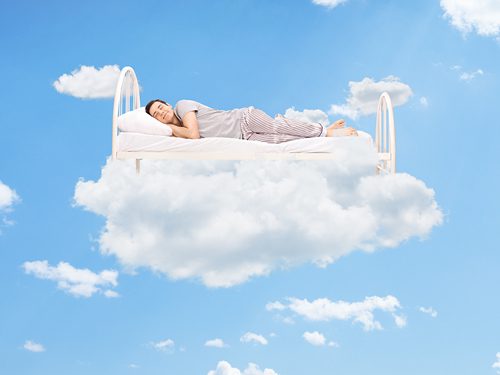
The Importance of Sleep in Recovery
Besides eating healthy and exercise, there’s one piece of advice doctors always give their patients.
Get plenty of quality sleep. Sleep is important for everyone’s health, but is especially important for those in recovery. Here’s why.
Lack of sleep turns even the strongest people into their most vulnerable self. When people are sleep-deprived, they put themselves at a greater risk of falling into depression, suicidal thoughts, obesity, or turning to coping mechanisms. If those weaknesses and coping mechanisms are alcohol and drug related, lack of sleep can cause even the most determined and strong individuals to relapse.
Sleep has so, so many benefits:
- Sleep improves memory and brain function. There’s a reason people give the advice, “Sleep on it and decide in the morning.”
- Sleep may increase your life-span. Too little sleep might be connected to shorter life-spans. However, this may because sleep increases quality of life and people with happy lives live longer. But either way, sleep is connected to longer and/or happier lives!
- Sleep fights inflammation. Studies show that people who get less than six hours of sleep have higher inflammatory proteins in their blood. Inflammation has a variety of symptoms and is linked with problems from heart disease, to diabetes, to arthritis, to pre-mature aging. Sleep gives your body time to rid itself of substances that might cause inflammation.
- Sleep increases creativity and athleticism. It’s difficult to be good at things when you haven’t had much sleep, even things you’re normally good at. It’s important for people in recovery to have sober hobbies and activities they enjoy—so it’s clearly important for them to also have the energy and brain-power to do those activities.
- Sleep helps keep you at a healthy weight. Did you know that sleep and metabolism are controlled by the same sector of the brain? Hormones control weight. When you go without sleep, certain hormones go up in your blood and your appetite increases. This is why you might get hungry when you’re up late at night watching TV or working on a deadline. Research shows that well-rested people lose fat quicker, whereas sleep-deprived people lose muscle-mass quicker.
- Sleep lowers stress. The professionals at Victory Addiction Recovery Center focus on methods for handling stress. Stress is a major trigger for someone in recovery and is a common cause of relapses.
More sleep means lower stress, which means a better chance of staying sober.
- Sleep helps with depression and anxiety. Yes, sleeping too much can be a sign of depression, but getting too little sleep can worsen depression and anxiety.
For more benefits of sleep and consequences of lack of sleep, visit Sleep Medicine at Harvard’s website.
Need a good rule of thumb to tell if you’re getting enough sleep? Do you sleep a lot more on the weekends than on the weekdays? If so, you probably aren’t getting enough sleep during the week. Yo-yoing between too little sleep and too much sleep doesn’t create balancet. You need to get enough sleep every night.
Sleep is a gift that our body and mind gives us. It’s a time when our minds can sort through the large amounts of information we took in during the day. It may seem counterintuitive, but allowing your brain and body to rest will actually allow you to get more done than staying up late and foregoing rest. Why do we deprive ourselves of something good?
Insomnia and Addiction
It’s easy to say that getting enough sleep is good, but what about those who have a hard time falling and staying asleep? For more information on insomnia, check out this earlier post on Victory Addiction Recovery Center’s website.
Alcohol and Sleep
It may seem that alcohol encourages sleep, but the opposite is actually true. Alcohol may induce sleep, but it leads to bad quality sleep. Alcohol keeps the body in a lighter stage of sleep, prohibiting the body from entering into deep, rapid eye movement sleep that our bodies need. Also, as the night wears on and the alcohol wears off, the body wakes up more and more often.
Distressingly, the more alcohol is used to help someone fall asleep, the more its sleep-inducing effects wear off. However, the disruptive qualities of alcohol do not lessen with time.
Like many aspects of recovery, there is a snowball effect. A person struggles with insomnia, so they turn to a substance like alcohol or another substance, which disrupts their sleep-pattern more. That’s how a vicious cycle starts. Fortunately, there are professionals at Victory Addiction Recovery Center who can help you put an end to that cycle.
Victory Addiction Recovery Center has a holistic approach which provides family counseling for those in the recovery center. Licensed staff give support to individuals and families of those struggling with addiction and can help you make healthy life choices, including setting a sleep pattern that will help you stay and get sober. If you, or someone you know is abusing substances, contact Victory Addiction Recovery Center and ask about how to get help.
